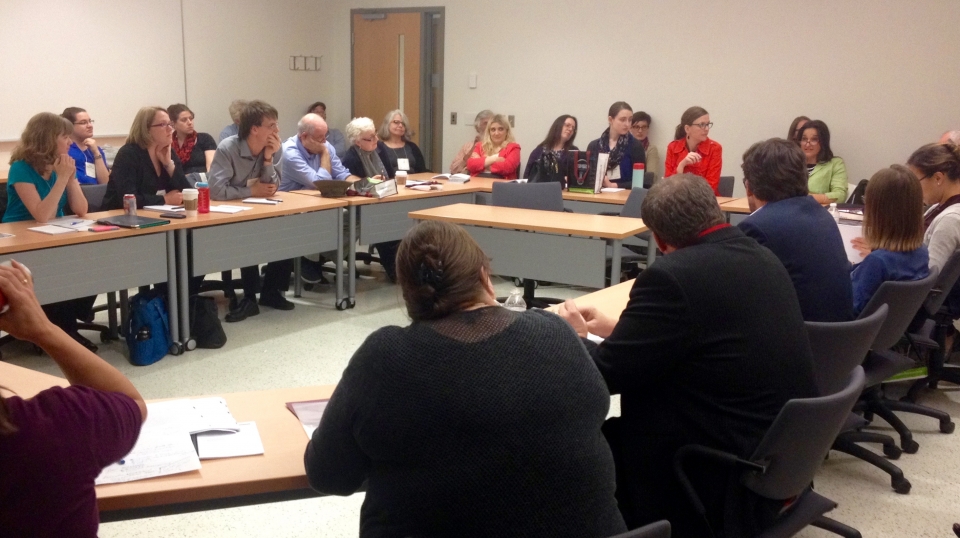The work of public historians can take many different forms, some quite unexpected. A roundtable discussion at Congress 2015 focused on the different roles that public historians take in their work. Jennifer Anderson of Library and Archives Canada acted as moderator of the discussion. Anderson is currently working on assignment at the Canadian Museum of History and offered insight into the role of both archives and museums in shaping public memory.
As a relatively new field, Public History has many unexpected applications in both the public and private sectors.The panel of speakers represented the various roles of public historians, from freelance and contract work for museums and other cultural institutions to various sectors and levels of government.
Ryan Shackleton described his work at Know History, a public history consulting firm that provides services to private companies seeking professional historical research. Linda Grussani of the Aboriginal Art Centre of Aboriginal Affairs and Northern Development Canada (AANDC) said that history is very much alive in this cultural institution.
The roundtable, taking place during the Truth and Reconciliation Commission’s closing ceremonies, discussed Aboriginal history and its place in public history. Grussani, Jean-Pierre Morin of AANDC and Alexandra Mosquin of Parks Canada all work to make the minority side of the story public knowledge.
Anderson noted that Ottawa is a hotbed for public history work, thanks to the presence of government organizations. There was a lively discussion over the advantages and drawbacks of public history work in the public and private sectors. One participant noted that in government work, “No matter who is in power, there are constraints as to how far we can push the envelope. You can’t go certain places.”
Much of the discussion involved advice for job seekers in the Public History field. Sanna Guerin, Independent Interpreter, has a background in Museum Studies and touted the benefits of volunteer work to building experience and relationships in the museum. Xavier Gélinas of the Canadian Museum of History emphasized that French is a requirement for most public history jobs in the National Capital Region. Shackleton emphasised the importance of networking. Shackleton recommended that people think less about a "job-search" and more about a partnership with an employer. All panelists agreed that, more than anything, networking was most important to finding a job.

